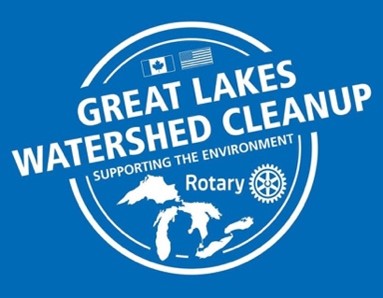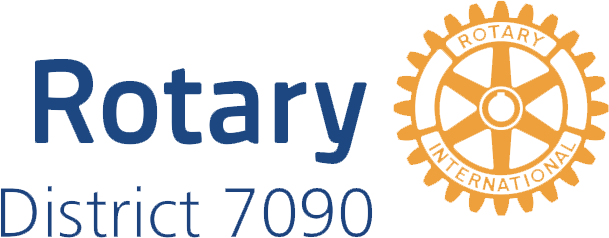The Great Lak es contains almost 20% of the world’s fresh water and is arguably the largest source of fresh water on the planet. Its watershed falls within eight states and two provinces and has 9,577 miles (15,323 kilometers) of shoreline. So far 15 Districts, 100’s of Clubs, and thousands of Rotary volunteers have agreed to participate. We will be joining over one billion people worldwide working on projects together in their communities on Earth Day.
es contains almost 20% of the world’s fresh water and is arguably the largest source of fresh water on the planet. Its watershed falls within eight states and two provinces and has 9,577 miles (15,323 kilometers) of shoreline. So far 15 Districts, 100’s of Clubs, and thousands of Rotary volunteers have agreed to participate. We will be joining over one billion people worldwide working on projects together in their communities on Earth Day.
 es contains almost 20% of the world’s fresh water and is arguably the largest source of fresh water on the planet. Its watershed falls within eight states and two provinces and has 9,577 miles (15,323 kilometers) of shoreline. So far 15 Districts, 100’s of Clubs, and thousands of Rotary volunteers have agreed to participate. We will be joining over one billion people worldwide working on projects together in their communities on Earth Day.
es contains almost 20% of the world’s fresh water and is arguably the largest source of fresh water on the planet. Its watershed falls within eight states and two provinces and has 9,577 miles (15,323 kilometers) of shoreline. So far 15 Districts, 100’s of Clubs, and thousands of Rotary volunteers have agreed to participate. We will be joining over one billion people worldwide working on projects together in their communities on Earth Day.Trash, plastics, and other littered items plague our waterways. This trash poses a threat to terrestrial and aquatic life, often becomes microplastics and harmful toxins, and pollutes one of the most precious and limited natural resources. Shopping carts, tires, furniture, trash, foam cups, plastic containers, and aluminum cans contaminate our waterways and greenways. More than 22 million pounds (10 million kilograms) of trash and plastic pollution ends up in the Great Lakes each year.
Cleanups by numerous non-governmental organizations, community groups, and individual volunteers are critical to reducing the amount of garbage that is collected in our watersheds each year. To track our success, the second goal will be to tabulate the amount of debris collected from each of the individual cleanup events. The final and most important goal will be to educate the public about the importance of protecting our waterways and to instill a sense of stewardship towards our Great Lakes.
The Great Lakes Watershed Cleanup will be held on or around Earth Day (4/22/2024) as a Day of Action service project. Depending on weather and timing your club can also identify an alternate date to do your cleanup.
This collaborative work project has generated much excitement and enthusiasm among the planners and Protecting the Environment is the newest area of focus of Rotary International. It also reflects our desire to be People of Action and to promote the good work of Rotary.
Rotary/Rotaract Objectives:
- Improve the aesthetics of the Great Lakes by removing garbage from public areas and roadsides.
- Reduce the amount of plastic and litter on our lands and in our waterways.
- Remove waste that could potentially be ingested by pets and other wildlife.
- Provide an opportunity for public participation in collaborative activities.
- Educate the public about the effects of littering and the importance of recycling plus instill a sense of stewardship.
- Collect and report back to the District organizers on cleanup numbers to track the impacts of all the cleanups.
Opportunity:
- Engage as many Districts, Clubs, Rotarians, Rotaractors, and other community groups and volunteers around the Great Lakes Watershed
- Each Club should find out what is happening in their community regarding other clean-ups. Engage with local authorities, municipalities, socially responsible businesses, watershed groups, and local non-governmental organizations to see what is already planned in your area and to coordinate or partner with them
- If there is not an event, plan to organize your own
- Support will be available to each Club to help to organize the event. This is in the form of this Resource Page, Zoom webinars, and networking.
- Correspond with the District contacts to provide cleanup event date(s), location, and lead contact person for each event.


.png)












